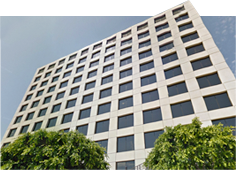USCIS Issues Draft Guidance on 204(j) “Same or Similar” Portability
New Draft Guidance was issued by USCIS last week, seeking to clarify whether a new job is in the “same or similar” occupational category for purposes of INA Section 204(j) immigration portability. USCIS is accepting comments on the draft until January 4, 2016.
By way of background, Section 204(j) of the Immigration and Nationality Act allows foreign workers who are being petitioned for a “green card” by their employer to change jobs once their application has been pending for 180 or more days. This “portability” provision has long been welcomed by workers, particularly those from India and China, who often wait years to receive an employment-based green card. Without portability, some workers would be hampered by a lack of flexibility and would be stuck in one job or with one company while awaiting lengthy visa availability.
Under Section 204(j), an employee being petitioned can change jobs if their underlying immigrant visa petition (I-140) is approved (or approvable) and their green card has been pending for over 180 days. The critical and sometimes confusing caveat is that the new job that the employee ports to must be in the “same or similar” occupational classification of the previous position. Exactly how “same or similar” is defined has been the subject of numerous USCIS memoranda, case law and discussion among immigration officers and attorneys. The new USCIS guidance, once released in its final form, will aim to provide clarity as to what constitutes “same or similar”.
Several real-life example illustrate the need for further guidance.
- Luis received an MBA in Finance in his home county 11 years ago. Six years ago, he was petitioned by a U.S. employer, as an accountant, and he has worked for them in H-1B status since. Four years ago, his I-140 was approved and his priority date (PD) was current, so he filed to adjust his status. His PD subsequently retrogressed and his adjustment has been pending since. Two years ago, Luis received a job offer in the position of CFO from a multinational corporation for whom he would have loved to work. Because Luis’ attorney advised him that the Director of Finance job may not later be perceived as being in the “same or similar” classification and because Luis did not want to risk the years he had spent waiting in line, he decided to pass up the better job opportunity and instead continue waiting.
- Ashok’s I-140, filed by his Chicago-based advertising agency-employer was approved in 2009 in the position of web developer. He was to be responsible for coding, design and layout of the company’s website, including maintenance of the site. By 2014, his priority date became current and he filed for adjustment of status, which included an employment offer letter prepared by the ad agency. In the letter, they confirmed his updated job title—software developer. In his new role, which the company thought was “same or similar” to the web developer position, Ashok’s role expanded from overseeing the company’s website to also solving operational problems with the company’s overall programs and applications, including writing new software and operating manuals, costing new systems, product testing and training users. Ashok’s initial green card was denied, as USCIS did not find that the two positions were same or similar. Upon the filing of a Motion to Reconsider the case was later successfully resolved, illustrating the subjective nature of comparing IT classifications.
Understandably, a foreign worker in the U.S. who has followed the proper procedures and been waiting years to obtain permanent residency would want to ensure that changing jobs employers will not cause them to place their green card at risk. Here are a few highlights of the November 20, 2015 USCIS Draft Guidance seeking to clarify this area.
Promotions and career progress shouldn’t be punished
The memo allays concerns that a promotion in the same category will result in a finding of a lack of similarity. It pays deference to the idea that a promotion to a more senior related or managerial position will have an overlap in some job duties and be considered the same or similar if the new position oversees individuals in the original occupation classification.
Preponderance of the Evidence Test
The draft memo reminds adjudicators that the same or similar determination related to 204(j) portability involves a preponderance of the evidence test—in other words, it must be established that it is more likely than not that eligibility has been met. The memo also articulates a totality of the circumstances test, such that any relevant, probative, and credible evidence, considered “individually and within the context of the totality of the evidence” should be considered by the adjudicator. This will help in cases where the occupational category may have slightly changed over the years, in allowing an argument which includes a more contextual understanding of the job.
Department of Labor’s SOC Codes to be used
The memo clarifies that Standard Occupational Classification (SOC) Codes can be looked to as a guide as to job similarity. The sameness or similarity of two positions may be shown if the jobs are located within the same broad occupational group code (first two digits). These jobs typically share similar duties, experience and educational backgrounds.
This analysis could be particularly beneficial to individuals such as Ashok, above. The broad occupational group of Software Developers and Programmers (15-1130) contains both Software Developers, Applications (15-1132) and Web Developers (15-1132) thus adding to the contention that the preponderance of the evidence test has been met.
In stating the need to improve the nation’s high-skilled immigration system, employment portability was one of the items mentioned as a component of President Obama’s November 2014 Executive Actions. USCIS is currently seeking comment on its “same or similar” draft guidance until January 4, 2016 and it intends to make its final policy memorandum on the issue effect in March of 2016.






